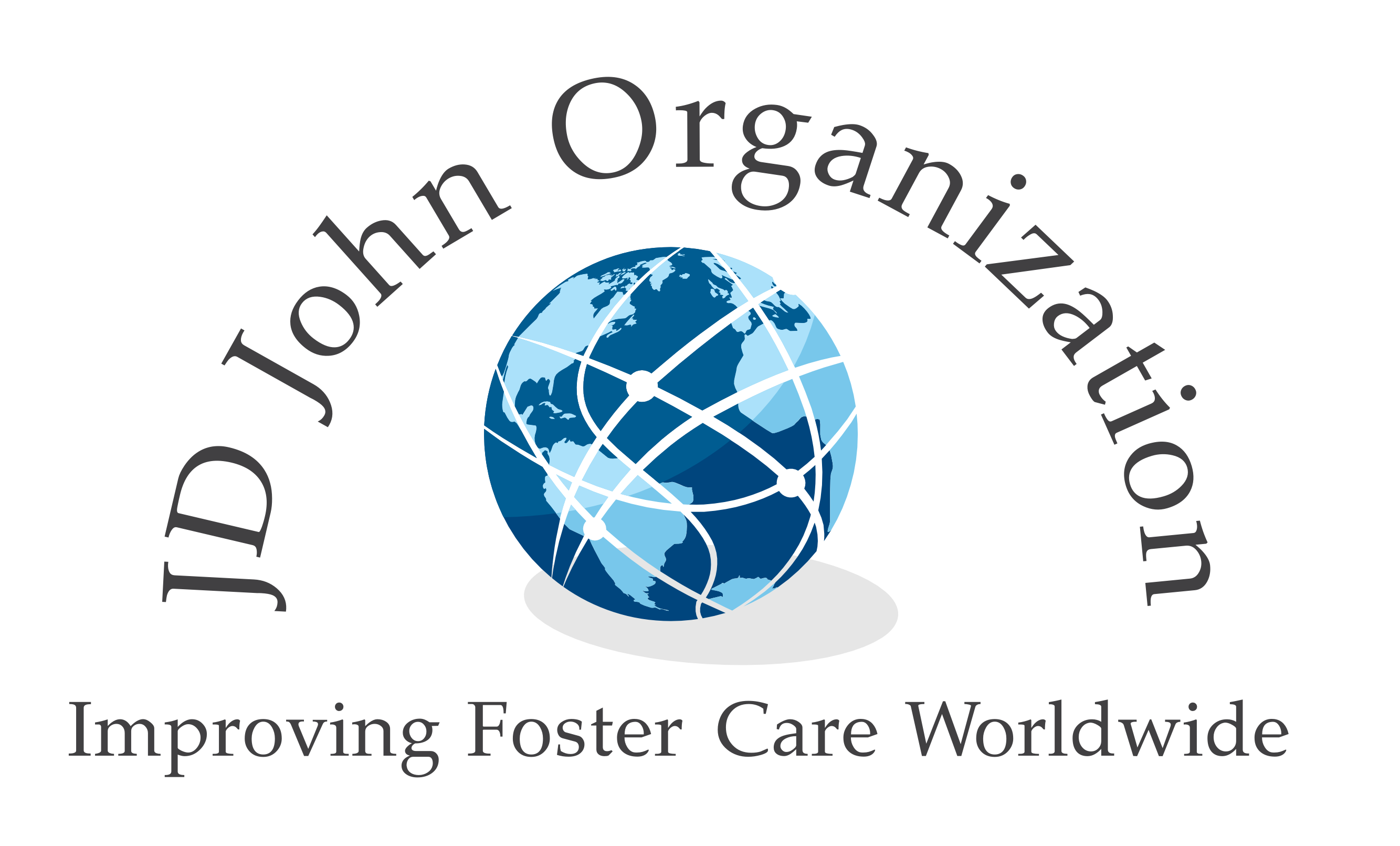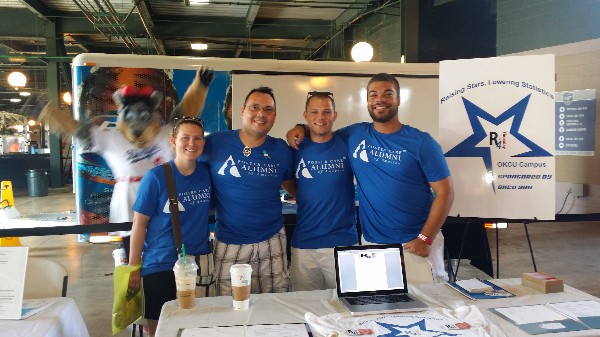Chickasaw Citizen Impacting International Foster Care
By J.D. John
Foster Focus Contributor
Every good introduction needs a great eye catching statement; so here is mine. I embrace the title of being a foster child and now a foster care alumnus. My unique situation as into who I am will begin with saying; I am a second-generation foster child and my name is Jimmy Dale John. I go by JD since it is simple and easy for people to remember because the impact that I have on a person is very impressionable when it comes to my passion for foster care. I am a second-generation foster alumnus due to the fact that my biological mother was in foster care when I was born. I have also had the unique and wonderful experience of being in foster care under the State of Oklahoma Child Welfare System as well as Indian Child Welfare. Both have afforded me a life experience that I wouldn’t trade for anything because it has help mold me into the passionate person. I learned compassion from my life experience and working as professional of the medical community. I gained leadership training and experience in the military as well as being a General Manager for multi-million dollar hotels. One skill I am happy to say I am always learning is to listen to who a person is versus making a judgment based on their past mistakes. One resilient facet of my life is even though I am disabled, I never let that stop me from trying to help those in need who need a voice. My determination comes from being a foster child, it’s too easy to give up and give in versus fighting for what is important in a person’s life and a foster child learns determination at an early age but is a trait that can propel them to greatness.
At the age of 14, I attended an Oklahoma Teen Conference; age 15 the National Teen Conference in Glorietta, NM; age 16 another Oklahoma Teen Conference; age 17 met with the Director of Human Services, then Howard Hendricks, served as an Oklahoma House of Representative legislative page; and at age 18 attended the National Teen Conference in Chevy Chase, MD. All of this was done while being a foster child. One major take away from all of those conferences, as well as smaller conferences, teen panels, and foster/adoptive parent training panels, I took away was that I have a huge voice to be heard on ways to improve lives of others that I may never meet in person.
I have experienced the burden of not knowing my family but conversely been given the opportunity to build a family of my own choosing. One that can lean on one another and provide the loving support all individuals require. I now have relatives of all ethnicities that show me part of their culture and are very open to learning the dynamics of my Native American Heritage. The persons in my life that I admire are not the celebrities but those who know some of my experience and refuse to let statistics dictate the outcome of our lives.
Being Native American in Oklahoma it was vital for me to attend functions such as powwow’s, stomp dances, and annual gatherings in Tishomingo to celebrate my heritage. I learned my first word in my native language – Chokma, which I even use to greet people at various conferences and panels to plant small seeds of my culture. These learning and cultural experience formed a question – how important are we keeping foster youth’s culture in their lives? One thing my culture has instilled in me is to be Chickasaw Proud! This comes from all of the oppression that we as a tribe have overcome, to persevere, move forward, and build a stronger Nation for and within ourselves. We come from humble beginnings but show we are mighty with our inner strength.
When I was asked as a young child what did I want to become my original ambition was to become a pediatrician. As I grew older those ambitions have changed more to reflect the type of up-bringing I had experienced as a foster child. My goals now are to become a nationally recognized speaker, presenter, and advocate for foster youth in care, those transitioning out of care, and the several hundreds of thousands of foster alumni.
I realize that being an advocate is what brings me the greatest joy especially since I am so passionate and devoted to what foster care is, how to reform it, and ideas on how to change the face of who a foster child is.
So, that is my quest, to become the best spokesman for foster youth locally, at the state level, nationally, and internationally. This quest is so that there will be continued positive changes that come from one individual who knows what it’s like to walk in their shoes without judgment or reservation as into who they are.
So when asked what are my long-term goals and how to achieve them the best and honest answer I can provide is one step at a time with one vision at a time. I know I will need and gladly accept guidance in how to achieve the most impactful outcomes and encourage the positive criticism that comes with it.
Now, how do I put it into action? I attend as many conferences and functions as possible and build the rapport required to display the role of international diversity and culture. In achieving that goal I need sponsorship to attend events and get my personal website, www.jdjohn.org, up and running to focus on foster care, the statistics behind it, and the various forms of care one can experience. Also on the site I believe in fund raising not only to assist in the cost of attending conferences but also to assist in any emergency costs that a foster youth my need financial assistance since there isn’t always a parent to request help from. It is also my hope to build a philanthropy part to the website so that I may one day be able to give back to others just as others are willing to assist me in achieving my dream.
Recently at the first Annual Alumni Powerhouse Networking Conference, I learned about an International Foster Care conference where there will be dignitaries and policy makers from all over the world to discuss foster care issues and how to properly address them. That knowledge set into motion and thought about how much cultural influence plays in a foster child’s care and permanency planning goals. This international conference is my stepping stone to discover that answer and allow me to advocate for the importance of one’s cultural heritage.
The International Foster Care Organisation (IFCO) is hosting an international foster care conference in Sydney, Australia. One of IFCO’s key activities is to provide foster care stakeholder’s a unique opportunity to share information and learn about global fostering advancements. IFCO has established a worldwide network with active networks in Latin America, Central and Eastern Europe as well as regional networks in Asia, East Europe, and South America. What better organization to be involved with to bring about the complex issue of cultural influence on the foster care system. The title of the 18th Biennial International Foster Care Conference is “Tell Someone Who Care,” which could not be more fitting considering the many issues facing the worldwide foster care system and encouragement to have a foster care alumnus in attendance.
After attending this conference and others that I can seek sponsorship for, I would like to establish workshops to focus on more cultural involvement for foster youth throughout the State of Oklahoma and the nation and one day globally. I wish to address leaders of child welfare at state and tribal levels and bring back the importance of heritage and who one is from the blood that flows through our veins. I further wish to go back to school for a communications degree so that I can learn effective ways of communication and deliver the change in young adults, policy makers, and all stakeholder’s lives to better one another.
It is my deepest passion and wish that my tribe, the Chickasaw Nation, as well as private and even corporate donors assist me in this pursuit and fully fund me to attend the International Foster Care Organization conference to represent the power of what a foster alumni can achieve, the Great Citizens of the Chickasaw Nation, the United States of America, and a passion filled individual. I wish to learn ways to improve the lives of my tribal siblings, foster siblings, strengthen the support needed for our foster parents so that we can get away from congregate care facilities, decrease the negative stigma associated with the term foster child/kid, encourage the term of “Youth with Promise” versus “at-risk youth”; but most importantly, gain knowledge from those smarter, more innovative, and equally devoted to improving foster care on a globally diverse level.
I was once told by a man a simple saying, “I’m just a chunk of coal right now, but I’m going to be a diamond someday.” That saying has never left my mind and I personally feel it’s my time to begin the process of turning from just a chunk of coal into a diamond. It’s time for me to take a stand and assist our future leaders to preserve heritage, person, commitment, and charity. We are all interdependent upon one another; let’s use common areas to rise above and glisten brighter than the most pristine diamond.


